Co-organized by:


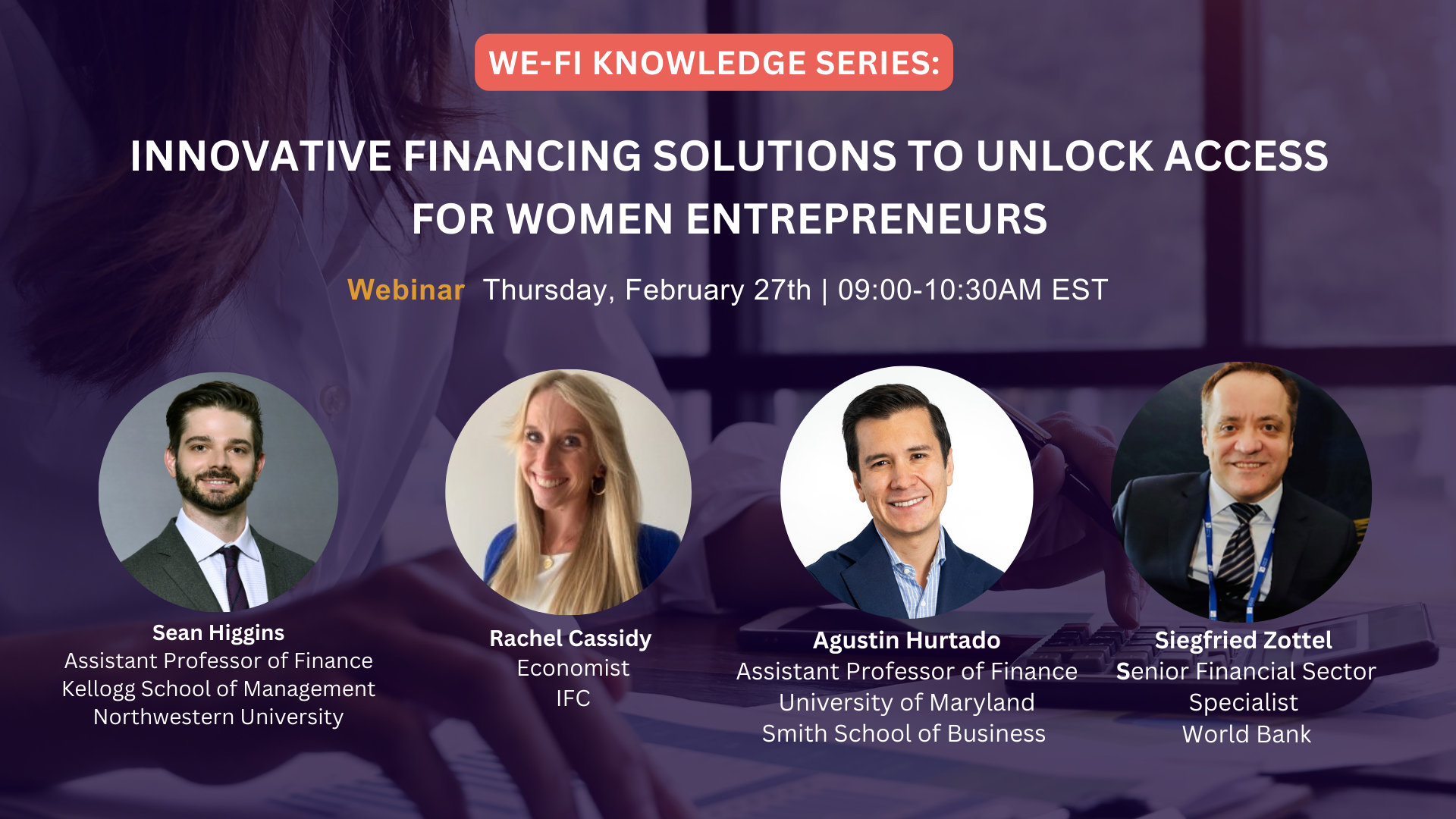
Presentations
- FinTech Lending to Borrowers with No Credit History – Sean Higgins, Assistant Professor of Finance, Kellogg School of Management at Northwestern University
- Impact of Psychometric Loan Appraisal for Women Entrepreneurs -Rachel Cassidy, Economist, IFC
- Innovative Financing for Women Entrepreneurs – Agustin Hurtado, Assistant Professor of Finance, University of Maryland Smith School of Business
- Shifting from Collateral to Cashflow – Siegfried Zottel, Senior Financial Sector Specialist, World Bank
Paper Links
-
Felicia Siegrist, Research and Knowledge Lead, We-Fi
-
Michelle Brock, Senior Research Economist, EBRD
-
Sean Higgins, Assistant Professor of Finance at the Kellogg School of Management at Northwestern University: Presenting “FinTech Lending to Borrowers with No Credit History ”
-
Rachel Cassidy, Economist at IFC: Presenting “Evening the Credit Score? Impact of Psychometric Loan Appraisal for Women Entrepreneurs “
- Agustin Hurtado, Assistant Professor of Finance at University of Maryland Smith School of Business
-
Siegfried Zottel, Senior Financial Sector Specialist at the World Bank
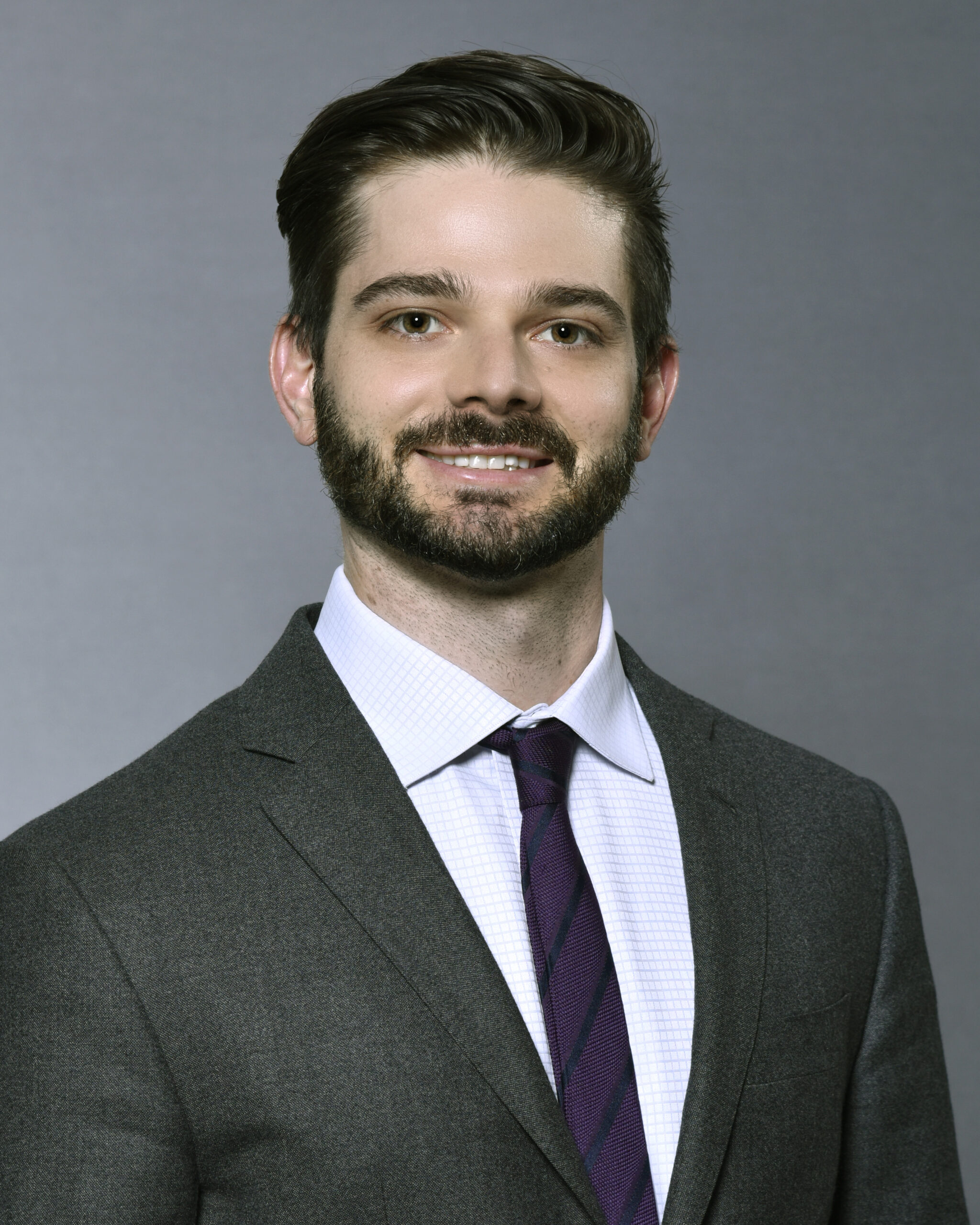
Sean Higgins, Assistant Professor of Finance, Kellogg School of Management of Northwestern University
Sean is an Associate Professor of Finance at the Kellogg School of Management, Northwestern University. He is also an Associate Editor at the Review of Finance and an Affiliated Professor at MIT’s Jameel Poverty Action Lab (J-PAL). His research examines how technology reduces frictions in payments and consumer financial markets in emerging economies, using natural experiments and RCTs.
He teaches Entrepreneurial Finance and Venture Capital to MBA students, winning the Sidney J. Levy Teaching Award, and was named a Poets&Quants 2024 Best 40-Under-40 MBA Professor.
Sean co-founded and co-organizes the Webinar in Finance and Development (WEFIDEV), which includes webinars and an annual conference. The 2025 WEFIDEV-RFS-CEPR Conference offers a dual-submission option with the Review of Financial Studies.
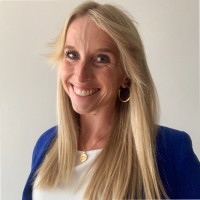
Rachel Cassidy, Economist, IFC
Rachel is currently an economist specializing in development impact evaluation at the International Finance Corporation, within the World Bank Group. Previously, she was an economist at the World Bank’s Africa Gender Innovation Lab. In her personal capacity, Rachel is a non-resident fellow at the Center for Global Development, an international research associate at the Institute for Fiscal Studies, a research associate at the University of Warwick’s CAGE Research Centre, and an affiliate of the University of Oxford’s Centre for the Study of African Economies.
Rachel received her PhD from the Department of Economics at the University of Oxford, where she also taught in the Said Business School’s MBA program. She completed part of her PhD as a visiting student at Stanford University. Additionally, she was a member of the Board of Trustees at Beyond Equality.
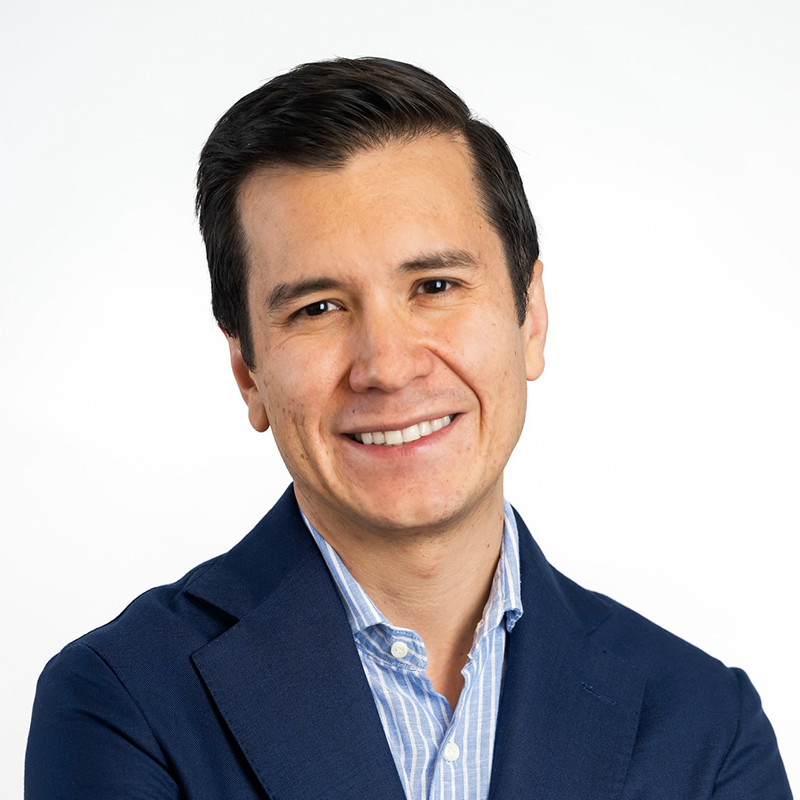
Agustin Hurtado, Assistant Professor of Finance at University of Maryland Smith School of Business
Agustin’s research focuses on finance and inequality. He studies financial markets and institutions serving low-income, minority, and immigrant entrepreneurs and households. His recent work investigates racial disparities in the mortgage market and the effect of minority bank ownership on minority credit in the U.S. Agustin’s ongoing research develops a novel immigration measure to assess its impact on housing markets and household financial distress.
At Maryland, he teaches Banking, Corporate Finance, and Household Finance at the undergraduate and Ph.D. levels.
Agustin holds a Ph.D. in Finance from the University of Chicago.
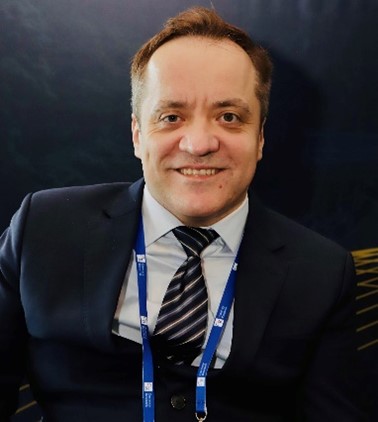
Siegfried Zottel, Senior Financial Sector Specialist, World Bank
Siegfried Zottel is a Senior Financial Sector Specialist in the World Bank’s Finance, Competitiveness, and Investment (FCI) Global Department for the East Asia and Pacific Region, based in Singapore. He serves as a regional focal point for financial inclusion, payments, gender, and the digitalization of government-to-person (G2P) payments, supporting countries in expanding financial access, fostering financial innovation, and strengthening financial resilience. Over his World Bank career, he has led or contributed to policy dialogues, lending operations, and advisory services in more than 35 countries, primarily in Africa and Asia. His work focuses on leveraging digital technology to advance financial inclusion, including strengthening legal and regulatory frameworks, modernizing financial infrastructure, digitizing G2P transfers, enhancing financial consumer protection and capability, and developing national financial inclusion strategies. He also engages in cross-sectoral initiatives on digital transformation and disaster risk insurance.
Previously, he led the Women Entrepreneurship Initiative (We-Fi) in Nigeria, driving women’s economic empowerment through innovative access-to-finance solutions. Before joining the World Bank in 2011, Siegfried worked at the Austrian Central Bank’s Economic Policy and Analysis Division, conducting research on household finances, inequality, and survey methodology. He has authored numerous technical notes, working papers, and policy research publications in these areas.

